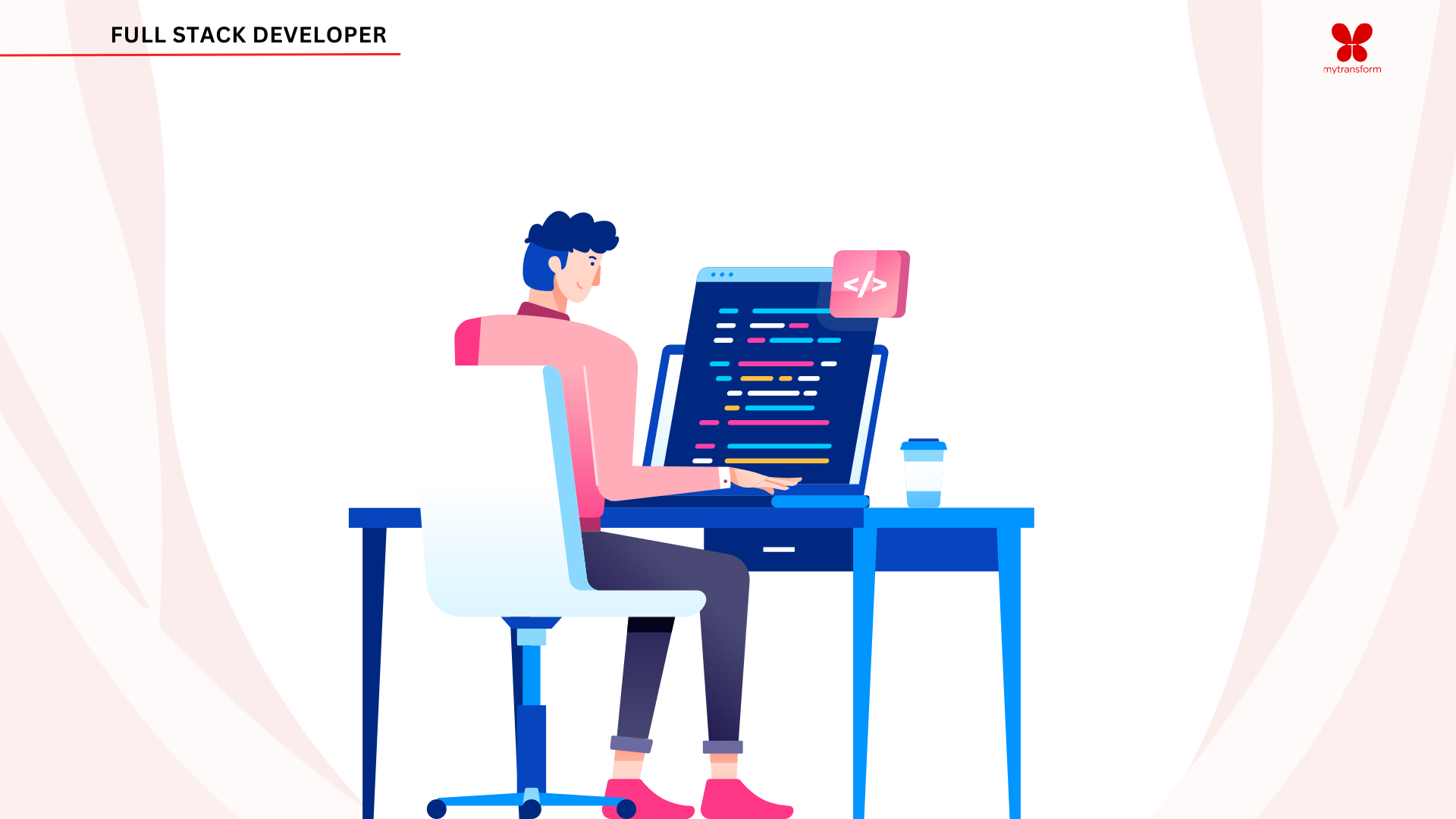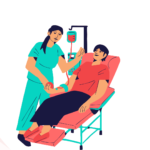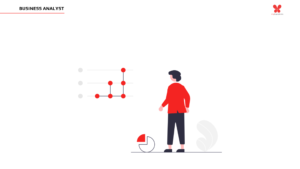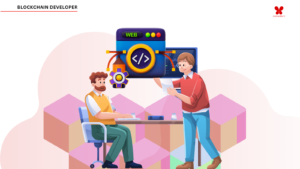
Full stack development is a rapidly growing field in India, with a high demand for professionals who are well-versed in both front-end and back-end development. With the rise of e-commerce and online businesses, full stack developers are in high demand to build and maintain complex, dynamic websites and web applications.
If you are wondering how to become a Full Stack Developer in India, read to know about full stack development courses, full stack development job, full stack developer tools, full stack developer skills, full stack developer languages and more.
Who is a Full Stack Developer?
A full-stack developer is a professional who has a working knowledge of all the components of a web application, including both the front-end and back-end. This means that they have expertise in a wide range of technologies, including HTML, CSS, JavaScript, databases, server-side scripting, and more.
Full-stack developers are able to build and maintain complete web applications, working on everything from the user interface to the database.
They are responsible for creating a seamless experience for users, ensuring that all components of an application work together smoothly and effectively.
What Does a Full Stack Developer Do?
A full-stack developer is responsible for the complete development of a website or web application. This includes the design, development, testing, and maintenance of the website or application. They also ensure that the website or application is secure and scalable.
Full-stack developer responsibilities typically include:
-
- Developing and maintaining the front-end and back-end components of web applications.
- Writing clean, maintainable, and efficient code.
- Designing user-friendly and responsive web interfaces.
- Integrating with APIs and databases to fetch and store data.
- Collaborating with other developers, designers, and stakeholders to build robust web applications.
- Debugging and fixing bugs and issues.
- Optimizing applications for maximum speed and scalability.
- Staying up-to-date with the latest technologies and industry trends.
- Writing technical documentation and providing support to junior developers.
- Participating in code reviews and testing to ensure quality.
Skills Required to Become a Full-Stack Developer
A full stack developer needs to have a good understanding of various technologies, including HTML, CSS, JavaScript, databases, and server-side programming languages. They should also have knowledge of software development life cycle (SDLC) and Agile methodologies. Other essential skills include problem-solving skills, critical thinking, and teamwork.
Eligibility to Become a Full-Stack Developer
To become a full-stack developer in India, you do not need to have a specific degree. However, having a bachelor’s or master’s degree in computer science or a related field can help. It is also important to have a strong portfolio of projects to showcase your skills and knowledge.
To become a full-stack developer in India, you typically need the following:
1. A bachelor’s degree in Computer Science, Information Technology, or a related field.
2. Strong programming skills in at least one server-side language, such as Java, Python, Ruby, or PHP.
3. Knowledge of front-end technologies like HTML, CSS, JavaScript, and jQuery.
4. Familiarity with databases and SQL.
5. Experience with at least one framework for front-end development like Angular or React and one for back-end development like Django or Ruby on Rails.
6. Knowledge of Git and version control systems.
7. Good understanding of RESTful API design.
8. Familiarity with cloud computing platforms like AWS or Microsoft Azure.
How to Become a Full-Stack Developer in India – Step-By-Step Guide
-
- Start with the basics: Learn HTML, CSS, and JavaScript.
- Get familiar with databases: Learn SQL and NoSQL databases.
- Learn server-side programming languages: Learn PHP, Ruby on Rails, or Python.
- Get hands-on experience: Build projects and participate in coding challenges.
- Get certified: Consider getting certified in full-stack development.
- Keep learning: Stay up-to-date with the latest technologies and advancements in full-stack development.
Career Opportunities for a Full-Stack Developer
A full-stack developer in India has numerous career opportunities in various industries such as software development, e-commerce, finance and banking, healthcare, government, startups, and consulting.
These developers can work for a company as part of a development team or offer their services as consultants.
Full-stack developers are in high demand due to the growing need for custom web applications. They can expect a challenging and dynamic career, with opportunities to work on cutting-edge projects, develop new skills, and advance their careers.
Full Stack Developer Salary in India
The salary of a full-stack developer in India can vary widely depending on several factors such as:
-
- Education and experience level
- Location
- Industry and size of the company
- Skill set and expertise
On average, a full-stack developer in India can expect to earn a salary between ₹4,00,000 to ₹12,00,000 per annum, with experienced developers earning at the higher end of the scale.
Best Full Stack Developer Certifications
-
- Oracle Certified Professional, Java SE 11 Developer
- Microsoft Certified: Azure DevOps Engineer Expert
- AWS Certified Solutions Architect – Associate
- Full Stack Web Development with React Specialization by The Hong Kong University of Science and Technology
Pros and Cons
Pros of Becoming a Full Stack Developer:
-
- High demand: With the rise of e-commerce and online businesses, full-stack developers are in high demand.
- Good salary: Full-stack developers have a good salary compared to other IT professionals.
- Career growth: There are many career growth opportunities for full-stack developers.
Cons of Becoming a Full Stack Developer:
-
- Continuous learning: Full-stack developers need to continuously learn and stay up-to-date with the latest technologies.
- Stressful: Full stack development can be stressful, especially when working on tight deadlines.
- Difficult to master: Full stack development is a complex field that takes time to master.
Summary
-
- A full-stack developer has expertise in front-end & back-end technologies, building & maintaining complete web applications for a seamless user experience.
- Full-stack developers design, develop and maintain web applications with responsibility for front-end/back-end components, clean/efficient code, user-friendly design, and technical documentation.
- A full-stack developer requires expertise in technologies like HTML, CSS, JS, databases, and server-side programming, as well as knowledge of SDLC and Agile, problem-solving skills, critical thinking, and teamwork.
- To become a full-stack developer in India, one needs a bachelor’s degree in computer science, strong programming skills, knowledge of front-end & back-end technologies, databases, frameworks, Git, RESTful API, and familiarity with cloud computing.
- Step-by-step guide to become a full-stack developer in India: Learn HTML, CSS, JavaScript, databases, server-side programming, build projects, get certified, and continuously learn new technologies.
- A full-stack developer in India has ample career opportunities in industries such as software development, e-commerce, finance, healthcare, etc. & can work in a company or as a consultant.
- The salary of a full-stack developer in India varies based on education, experience, location, industry, and skills, with an average salary of ₹4,00,000 to ₹12,00,000 p.a., experienced developers earning more.
- Top full-stack developer certifications: Oracle Certified Professional Java SE 11, Microsoft Certified Azure DevOps Engineer Expert, AWS Certified Solutions Architect, Full Stack Web Development with React by HKUST.
- Pros of Full-Stack Development: High demand, good salary, career growth. Cons: Continuous learning, stressful, difficult to master.
Frequently Asked Questions
Yes, full-stack development is a good career choice in India. It offers a promising career path with ample job opportunities and good salaries. With the growing demand for skilled full-stack developers, this field is likely to continue to grow in the future.
The salary of a developer depends on several factors such as experience, skills, and location. However, full-stack developers typically command a higher salary than other developers. In India, the average salary of a full-stack developer can range from 7 to 15 lakhs per annum.
Yes, Python can be used for full-stack development. It is a versatile programming language used for front-end and back-end development. It is widely used in web development, data analysis, and machine learning.
Like any other job, full-stack development also has its challenges. It can be stressful at times, but with the right skills and experience, it can be an enjoyable and rewarding career.
The demand for full-stack developers varies depending on the specific technologies in use at a given time. However, technologies such as JavaScript, React, and Node.js are currently in high demand, and many companies are seeking full-stack developers with experience in these technologies.
It is possible to learn the basics of full-stack development in 6 months, but becoming a skilled full-stack developer requires a lot of hard work and dedication. It may take longer than 6 months to master all the necessary skills, depending on your prior experience and learning pace.
Yes, many multinational corporations (MNCs) hire full-stack developers. Full-stack developers are in high demand, and MNCs require their expertise to build complex web applications and software solutions.
A full-stack developer has the skills and expertise to work on both the front-end and back-end of a web application. On the other hand, a backend developer is primarily focused on the server side of the application and develops and maintains the database, server, and APIs.
A full-stack developer has expertise in both front-end and back-end development, while a front-end developer focuses on developing the user-facing parts of a web application.
A front-end developer works on the website’s design, layout, interactivity, and pages. To know more on how to become a Full Stack Developer in India read our detailed article above




